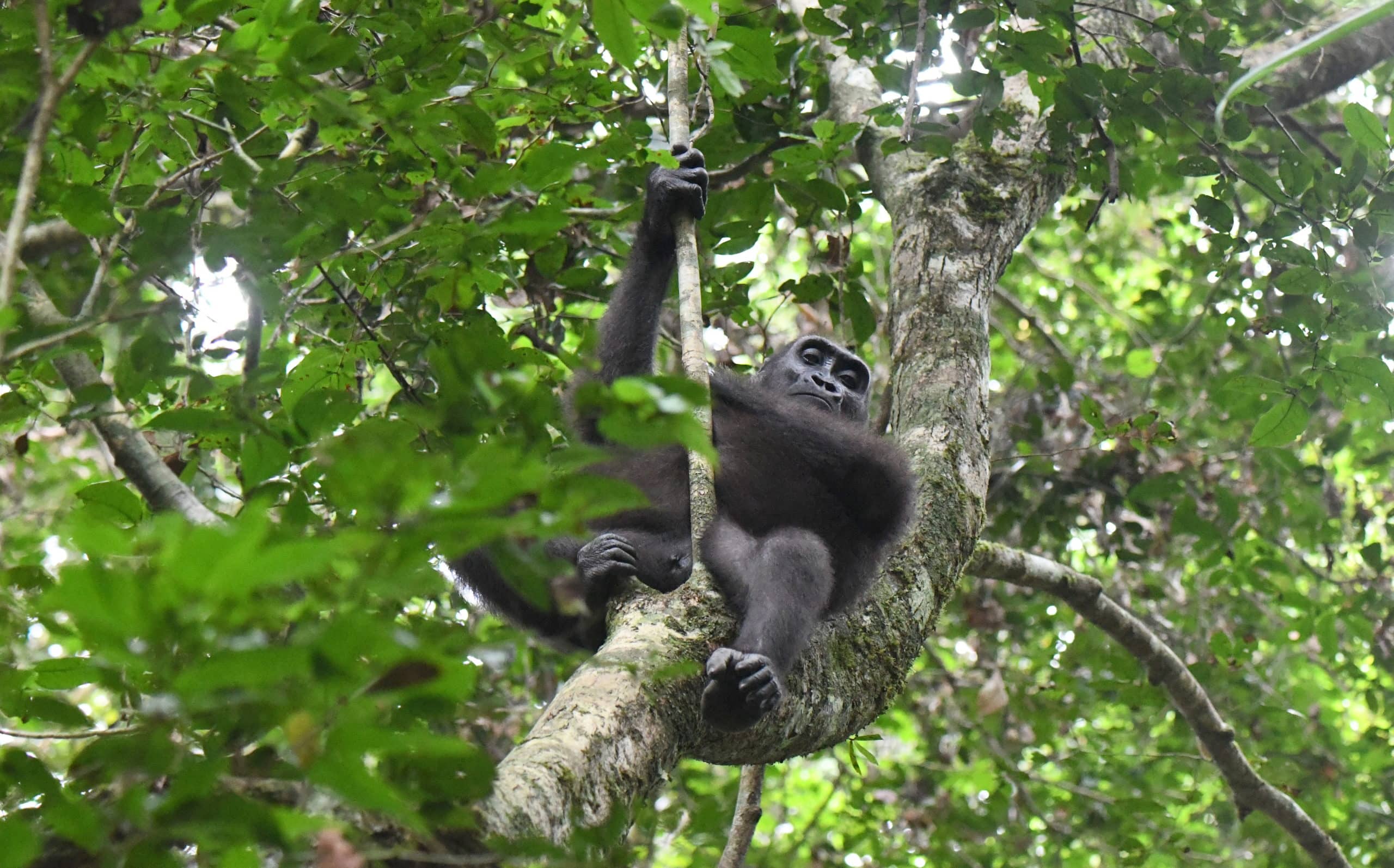Monitoring populations of the great ape in the thick equatorial rain forests of Gabon, one of the most carbon-positive countries in the world.
By Ramdas Iyer
Walking behind four machete-wielding villagers in the thick of equatorial rain forest in Gabon, I was participating in the unusual experience of preparing for a western lowland gorilla habituation project. Here we were creating multiple transect lines running over four kilometers through the forest; a well-established scientific methodology for estimating ape population size.
“Monitoring populations of gorillas is a necessary protocol prior to establishing a habituation program. Camera traps and GPS locators along the transects will eventually give us an idea of the group density in the area,” says Antonio Anoro of Gabon Untouched, a conservation and eco-tourism organization, who, alongside researchers from the Research Institute for Tropical Ecology (IRET), is spearheading the habituation of wild lowland gorillas in the buffer zone next to the Moukalaba-Doudou National Park which covers an area of 1,700 square miles.
Large expanses of tropical rainforest in western Africa have been cleared, logged, and overhunted in recent decades. In contrast, extensive forest in Gabon has survived in an intact condition because the country has a sparse population and substantial petroleum and mineral deposits that have reduced the economic pressure on forests.
The Gabonese government is eager to consider alternative strategies to augment economic development, including promotion of an ecotourism industry. This commitment is evidenced by the government’s designation of 13 national parks that comprise over a tenth of the country’s land area. Gabonese forests have among the highest levels of species diversity and endemism in tropical Africa and are likely to play a critical future role in biodiversity conservation.
Gabon Untouched supports sustainable tourism by bringing eco-tourists into deep jungle to observe first-hand, lowland gorillas in their natural habitat. Gorillas were first habituated for human observation and scientific research by Kyoto University scientists 20 years ago at Moukalaba-Doudou National Park.
“The steady influx of tourist funds has helped economically sustain the local village of Doussala and gorilla research activities. By habituating a second group of gorillas, we not only protect the forest, home for great apes, but also provide a sustainable livelihood for the locals,” says Anoro, who has worked tirelessly for eight years in Gabon for conservation efforts.
This month, in March, Gabon hosted the ‘One Forest’ Summit attended by Gabonese President Ali Bongo Ondimba, French President Emmanuel Macron and other heads of state, to highlight the environmental role and value of rain forests.
“Forests potentially represent 20-30 percent of the solution to climate change,” Gabon’s Minister of Water and Forestry and conservationist Lee White, said in opening remarks. The host nation, Gabon, became the first African nation to be recompensed through carbon credits for protecting its forests.
Gabon “absorbs around 100 million tons of CO2 per year…three tons every second,” White told reporters on the sidelines of the meeting. “We are well on the way to becoming a sustainable economy.”
